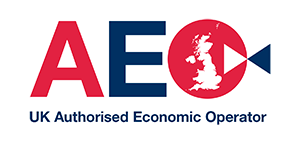
We are still awaiting the outcome of negotiations between the UK and the EU. The results of these discussions is expected to significantly impact the way in which trade is conducted following the end of the transition period.
The deliberations about the possibility of the UK holding a Free Trade Agreement (FTA) with the EU has opened up a discussion surrounding the ‘Rules of Origin’ and the way in which they could affect trade within the UK’s manufacturing sector.
What are the Rules of Origin?
FTA’s allow for any goods that originate within one country to have a free-tariff export when trading with another.
As a product could be created from multiple components (known as inputs) from different countries and merely assembled in the UK, rules were put in place to ensure that the majority of the product was made from inputs in order to qualify for free-tariff exports.
To help countries meet the requirements for free-tariff exports, many countries include flexibility surrounding this issue within trade agreements. This allows them to declare certain inputs, that are derived from elsewhere, as if they are from their own country.
Bilateral Cumulation
If the UK and the EU were to make a trade agreement they may decide that inputs from the UK can be treated as though they originate within the EU and inputs derived from the EU can be thought of as British. This is known as bilateral cumulation and would help the UK to have more flexibility when exporting goods within the EU, allowing tariff-free exports to apply to more goods.
Diagonal Cumulation
If the UK and the EU were to agree upon bilateral cumulation, another country that has a similar agreement with the EU may build an agreement with the UK, wherein they allow UK inputs derived from the EU to be treated as sufficiently British, increasing the number of tariff-free exports from the UK into that particular country, This is known as diagonal cumulation.
Extended Cumulation
The UK is said to be attempting to gain extended cumulation agreements with trading partners. This means that they could agree with an existing FTA partner that EU inputs are thought of as British when trading and the EU would have the opportunity to decide whether they would want to reciprocate and mirror this behaviour.
The EU has noted that it would not be particularly fair for the UK to utilise extended cumulation as it would give British exporters more freedom when trading internationally, giving UK traders an edge to trade goods made from inputs that are sourced internationally both tariff and quota free, something that they argue goes against the premise of the rules of origin.
What do you think? Get in touch via our Facebook and Twitter to let us know your thoughts!








